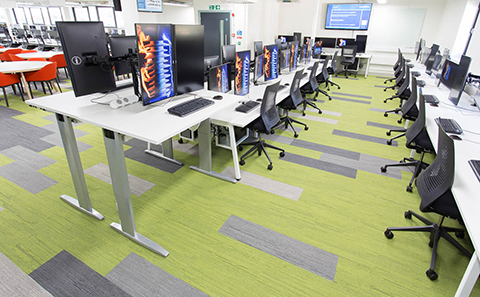
Computing Laboratory
View the architects impressions and technical specifications for the Computing Laboratory

View the architects impressions and technical specifications for the Computing Laboratory
Find out about preparing for internships with Ash Browning, MEng Computer Science graduate, now working for FactSet.
The international maritime city of Southampton is a vibrant, exciting place to live and study. Surrounded by countryside and coastline, the city is alive with events all year round - there really is something for everyone in Southampton.
Through world-leading research and enterprise activities, the University of Southampton connects with businesses to create real-world solutions to global issues.